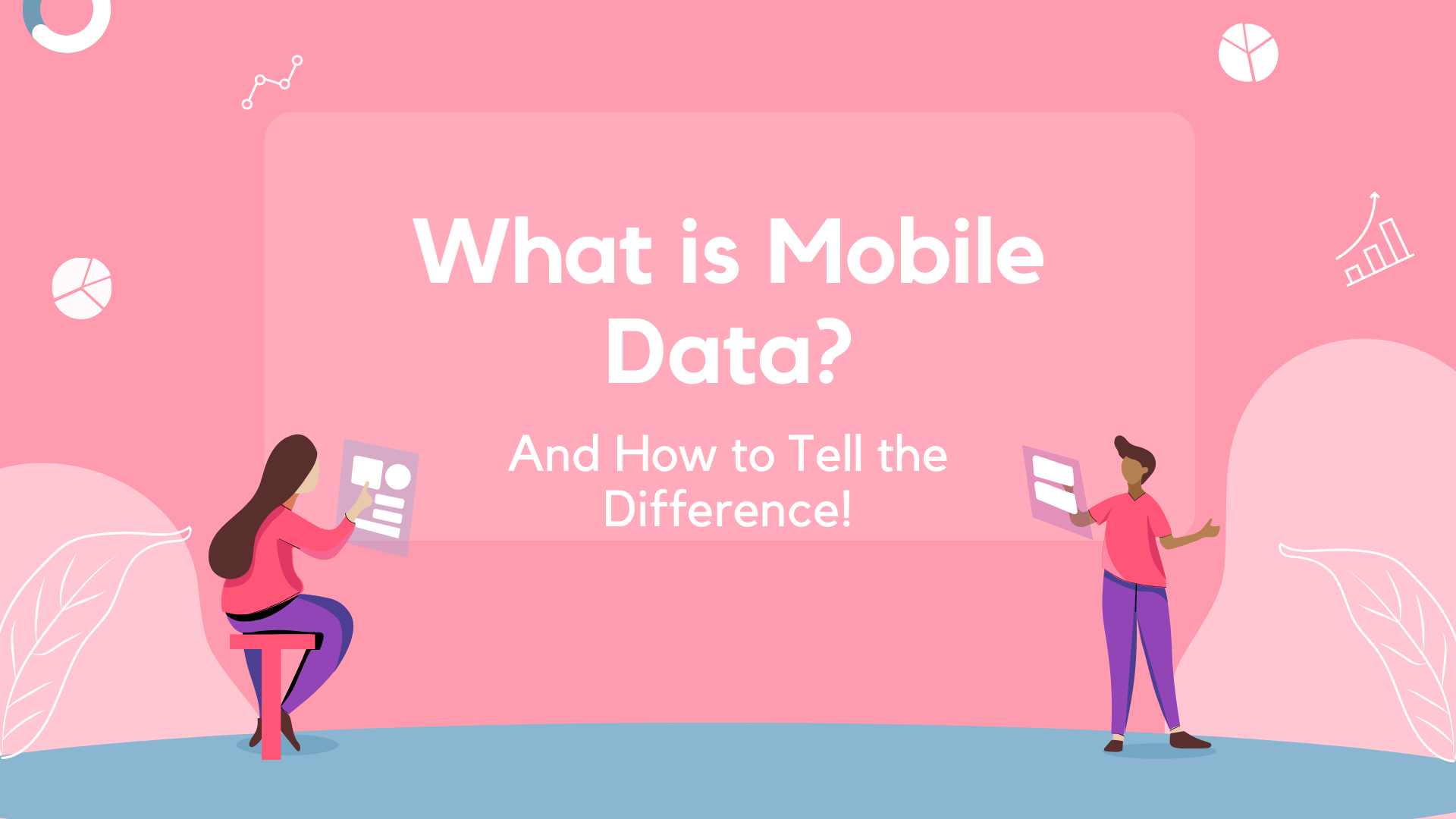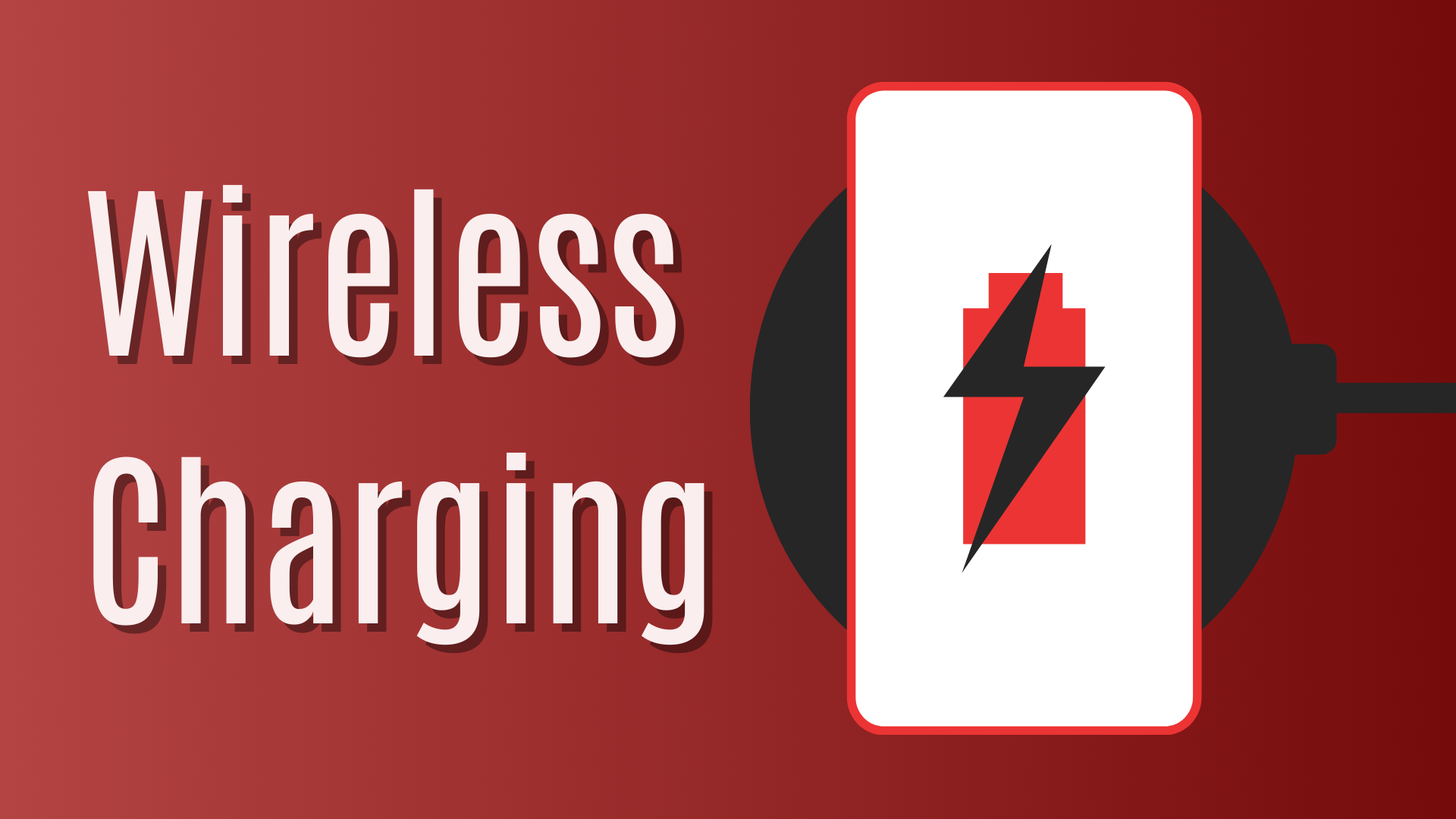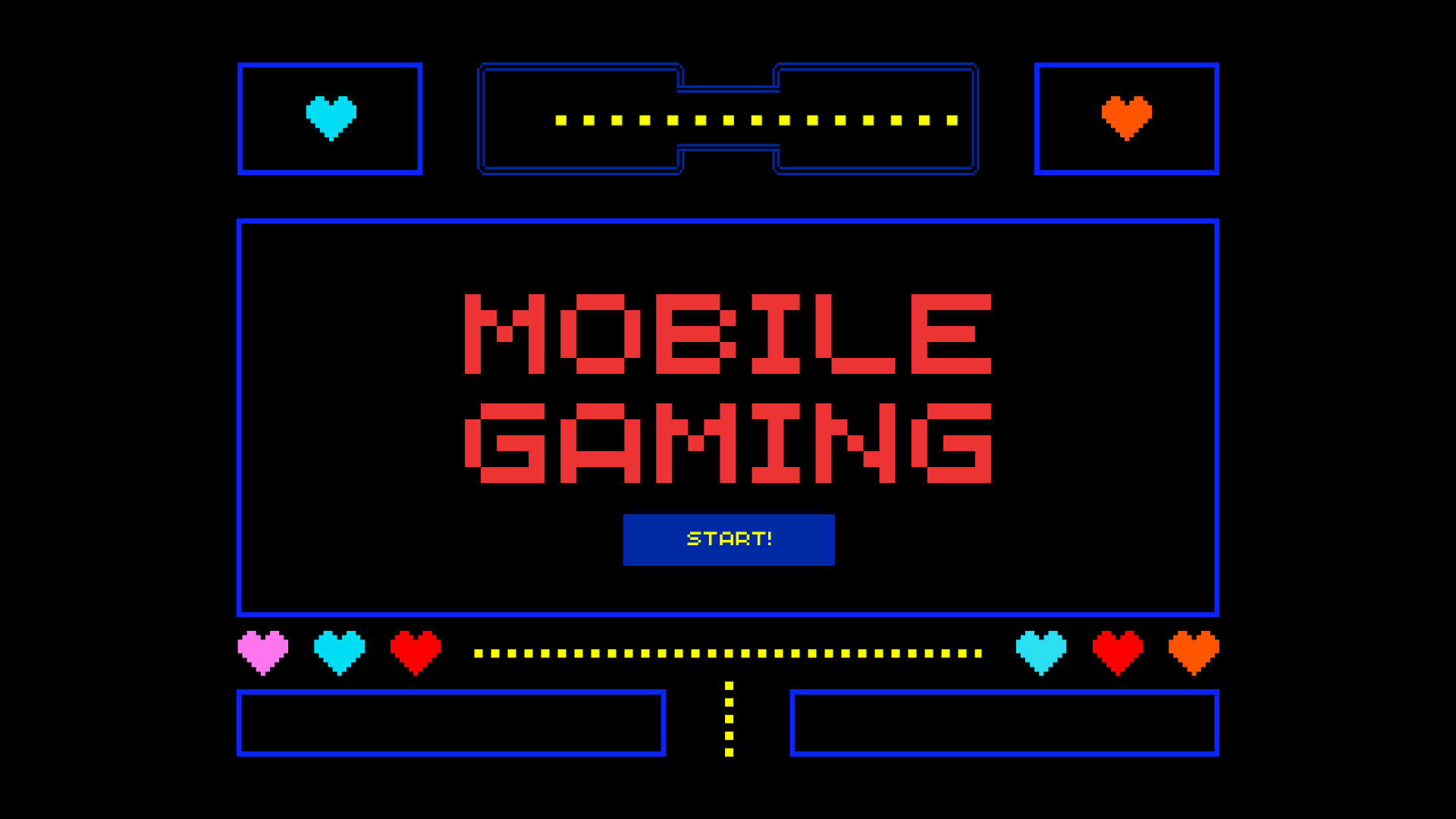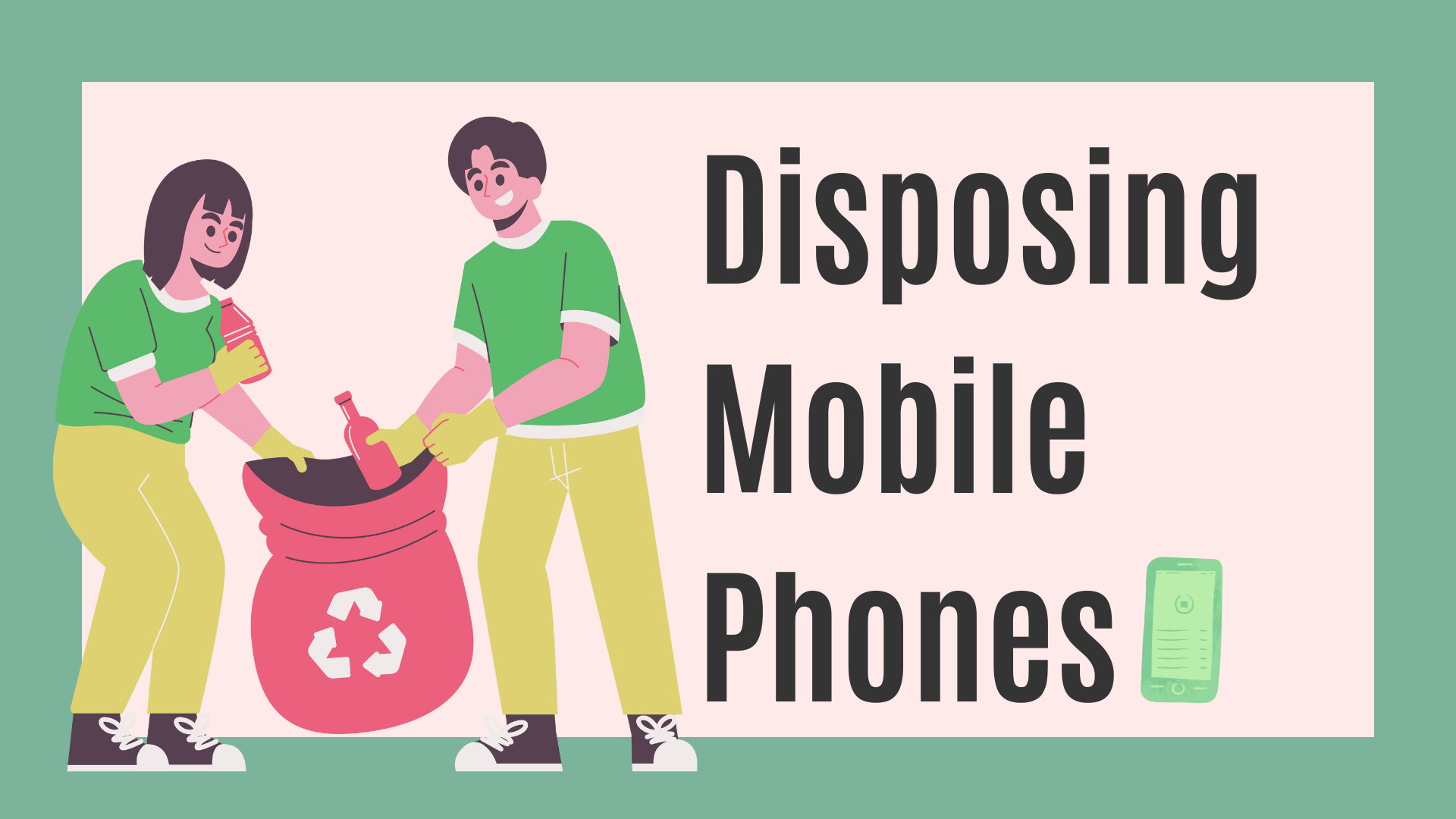Overview:
ToggleWhat Is Mobile Data?
Mobile data allows your phone to connect to the internet using cellular networks instead of Wi-Fi. It lets you browse the web, use apps, and stream content while you’re on the go. Unlike Wi-Fi, which connects to the internet through a local network (like your home router), mobile data uses the network of cell towers operated by your mobile provider.
Mobile data usage is typically measured in megabytes (MB) or gigabytes (GB), and mobile providers offer different plans with data allowances. Some activities, like streaming video or downloading large files, use more data, while others, like sending emails or browsing text-based websites, use less.
Click the link for Unbeatable Mobile Phone Deals You Won't Want to Miss!
--------------------------------------------
How Does Mobile Data Work?
Mobile networks, also known as cellular networks, rely on radio towers (transceivers) to send and receive the radio waves that allow your smartphone to connect to the internet. These radio waves, called “spectrum,” carry the data that enable you to browse, stream, and stay connected on the go.
In the UK alone, there are over 1.4 million registered cell towers that work together to provide coverage across the country. These towers often overlap in areas with high usage to ensure strong and reliable connections. To learn more about the different types of mobile data connections, keep reading!
What's The Difference Between GPRS and GSM?
Imagine your phone is like a walkie-talkie that can do a lot more than just talk. GSM (Global System for Mobile Communications) is the basic system that lets your phone make calls and send texts. It’s like the walkie-talkie part of your phone, connecting you to others using mobile towers.
Now, GPRS (General Packet Radio Service) is like adding a new feature to your walkie-talkie that lets you send and receive data, like pictures or emails. GPRS is what allows your phone to connect to the internet, but it’s slower than the newer ways of connecting, like 3G or 4G. So, while GSM is for talking and texting, GPRS is for basic internet stuff, but not super fast.
What's Does 'E' Mean on Mobile Data?
E or EDGE stands for Enhanced Data rates for GSM Evolution. It’s a step up from GPRS, which we just talked about. Think of it as a faster version of GPRS for using the internet on your phone.
When you see “E” on your phone, it means you’re connected to an older, slower network. EDGE is better than GPRS but still much slower than 3G, 4G, or 5G. It’s good for basic things like checking emails or sending messages but not great for streaming videos or fast browsing.
What Does H/H+ Mean?
H and H+ on your phone stand for HSPA (High-Speed Packet Access) and HSPA+ respectively. These are faster ways for your phone to connect to the internet compared to older technologies like EDGE.
H (HSPA): This gives you 3G-level speeds, which is decent for browsing the web, using apps, and even streaming music or videos, though not super fast.
H+ (HSPA+): This is an improved version of HSPA, offering even faster speeds, almost like 4G but not quite as fast. It’s good for most online activities, including video streaming and downloading files.
So, if you see H or H+ on your phone, you’re connected to a network that’s much faster than EDGE but slower than 4G or 5G.
What's The Difference Between 3G, 4G and 5G?
3G, 4G, and 5G are different generations of mobile network technology. Each generation represents a significant improvement in speed, reliability, and capability.
- 3G: Introduced faster internet speeds than 2G, allowing for mobile web browsing, emails, and video calls.
- 4G: Improved on 3G with much faster speeds, making high-quality video streaming, online gaming, and quick downloads possible. It’s also known as LTE.
- 5G: The latest generation, offering lightning-fast speeds, extremely low latency, and the ability to connect many devices at once, supporting things like smart cities and advanced tech like autonomous vehicles.
Let’s talk about each one in a bit more detail:
What is 3G?
3G (Third Generation) was a big leap from 2G, allowing mobile phones to do more than just make calls and send texts. With 3G, you could browse the internet, watch videos, and use apps that needed data.
It was the first time you could really start using the internet on the go, but speeds were still limited, making it sometimes slow for things like video streaming or large downloads.
What is 4G/LTE?
4G (Fourth Generation) brought a major improvement in speed and reliability over 3G. It allowed for seamless streaming of HD videos, faster downloads, and better online gaming experiences. 4G made mobile internet fast enough to replace some people’s home broadband connections. It also paved the way for apps and services that rely on fast, reliable data, like ride-sharing apps and live video streaming!
LTE is the name for the worldwide standard for 4G networks. LTE networks use a different radio interface and certain core network improvements to boost network capacity and speed.
As of 2021 4G represents 58% of the global mobile network market.
What is 5G?
5G (Fifth Generation) is the newest and fastest mobile network technology. It’s not just faster than 4G—it’s designed to support many more devices with almost no delay (latency). This makes it perfect for things like virtual reality, real-time gaming, and smart home devices.
5G can also handle the growing demand for data as more and more devices connect to the internet. In the future, 5G will support innovations like self-driving cars and remote surgeries because of its speed and reliability.
What Factors Affect My Signal Strength?
Several factors can affect your mobile signal strength, which determines how well your phone can connect to the network for calls, texts, and internet use:
Distance from Cell Tower: The farther you are from a cell tower, the weaker your signal will be. Being closer to a tower generally means a stronger signal.
Obstructions: Physical barriers like buildings, walls, trees, and even mountains can block or weaken your signal. Urban areas with lots of tall buildings, or rural areas with lots of natural obstacles, can both cause signal issues.
Network Congestion: If many people are using the same cell tower at the same time, such as in a crowded area or during a large event, the network can become congested, reducing signal strength and speed.
Weather Conditions: Heavy rain, snow, fog, and thunderstorms can interfere with radio waves, leading to a weaker signals
Interference from Other Devices: Other electronic devices, like microwaves, wireless routers, and even other phones, can sometimes cause interference, leading to a weaker signal.
Network Type: Different network types (2G, 3G, 4G, 5G) have different coverage areas and signal strengths. For example, 4G and 5G can provide faster speeds but might have shorter range compared to older technologies.
Battery Level: When your phone’s battery is very low, it might not perform as well, including its ability to maintain a strong signal.
FAQs
Should I turn off mobile data when on Wi-Fi?
Yes, it’s a good idea to turn off mobile data when you’re connected to Wi-Fi. This helps you save on data usage, prevents accidental overcharges, and can slightly extend battery life, as your phone isn’t constantly switching between Wi-Fi and mobile networks.
Why is my mobile network not available?
Your mobile network might be unavailable due to poor signal strength, being in a remote area, or experiencing temporary network outages. It could also be due to issues with your phone’s settings, such as airplane mode being enabled, or a problem with your SIM card.
What drains more battery, Wi-Fi or mobile data?
Mobile data generally drains more battery than Wi-Fi. This is because your phone has to work harder to maintain a connection with a cell tower, especially in areas with weak signal. Wi-Fi is usually more power-efficient, especially when you have a strong connection.
Is mobile data secure?
Mobile data is generally secure, as it’s encrypted by your mobile network provider. However, it’s not foolproof. To enhance security, avoid using sensitive information on public networks, and consider using a VPN. Apps and websites with HTTPS encryption also help protect your data.
What is the difference between 4G and H+?
4G is faster and more advanced than H+. While both offer good internet speeds, 4G allows for smoother video streaming, quicker downloads, and better overall performance. H+ (HSPA+) is an improved 3G connection, but it’s slower compared to 4G, which is closer to broadband speeds.
Can mobile networks see your browsing history?
Mobile networks can see the websites you visit, but they generally don’t see specific pages or content. They track this information for billing and service purposes. However, using a VPN or secure browsing (HTTPS) can help keep your browsing history private from your mobile provider.
Mobile Data Too Slow?
If you are looking to upgrade your phone, perhaps to improve your mobile network performance, check out The Big Phone Store for the best refurbished phones and brand new devices from one of the UK’s most environmentally conscious tech retailers.

Upgrade today by selling your old device! Click on the links to find out value of your mobile phone and how to 'Sell My Phone,' benefit from 'Phone Trade-In' or 'iPhone Trade-In' for the best value.
-------------------------------






